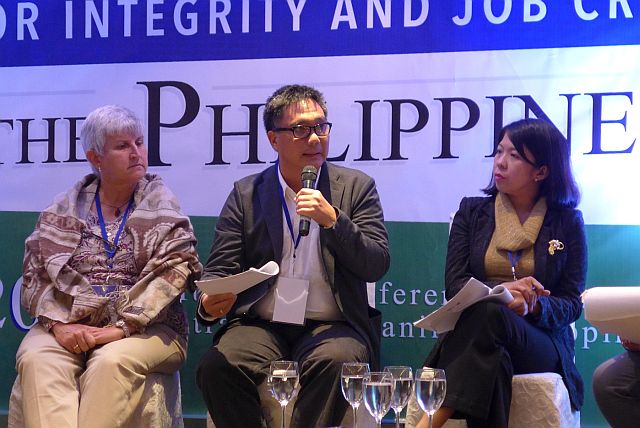
Provincial Administrator Atty. Mark Tolentino, joined the international conference on Partnerships for Integrity and Jobs (Project I4J) last August 25 at Bayleaf Hotel, Intramuros, Manila. (CEBU PROVINCE WEBSITE)
The Cebu provincial government officially launched a project which aims to develop integrity mechanisms in local government units.
Cebu Province was chosen as one of the pilot sites of the European Union-funded Partnerships for Integrity and Jobs (Project I4J) since it already has existing mechanisms in place.
Provincial Administrator Mark Tolentino said the endgame of the project is to be able to develop best practices in business and investment promotions, among others, to draw in more investors and generate more jobs in the province.
The project was launched at the Capitol Dignitaries’ Hall last Thursday.
During the project duration, chosen pilot sites will create and develop mechanisms which, in the end, will be shared across all local government units in the country.
Aside from Cebu province, San Carlos City in Negros Oriental and Tuburan town in midwest Cebu have also been chosen as pilot sites in the Visayas.
Puerto Princesa City in Palawan, Naujan in Oriental Mindoro, and the province of Oriental Mindoro have also been picked.
In Mindanao, Cagayan de Oro City, the Iranun Cluster in Maguindanao and the province of South Cotabato have been chosen.
The pilot places were selected in July this year. It was also the same time when civil society integrity circles were set up and problems of each LGU were assessed.
Project I4J employs the “integrity circles strategy,” wherein best practices from the government, civil society and business sectors are shared within each circle.
July Anne Guibone of the Provincial Investment Promotions Office, in a presentation, said that among the project objectives is to include LGUs as key players for clean administrative procedures.
“We want to create a sustainable network for self-obligation and monitoring of transparent and uncorrupt structures and procedures,” she said.
Furthermore, the project also aims to create models of transparent, effective small business and investment registration and promotion procedures and disseminate them.
The Capitol, by far, has 10 mechanisms promoting “integrity, transparency and accountability” being practiced.
Among these is the installation of information boards and signage in strategic areas at the Capitol.
A project pamphlet states that “information boards should be placed strategically where all clients and employees can see them. Communicating with the public about up-to-date information, new policies and announcement improves transparency and effective information dissemination.”
The provincial government also plans to fully standardize and streamline business procedures, which will provide a clear and standard system.
“This encourages and attracts investors to register their businesses without availing of the services of fixers and using connections for speedy processing,” the pamphlet states.
Other mechanisms the provincial government is practicing are improved customer service for all frontline service agencies, easy facilitation of investment processes, increasing transparency and accountability of financial releases, and information, education and communication, among others.
The government integrity circle is made up of the provincial administrator, General Services Office Officer-in-charge Jone Sepe, Social Welfare Office Head Rocelyn Zosa and Investment Promotions Officer Benjamin Joseph Yap.
Zosa, in response to the issue of sustainability, said that the mechanisms should be institutionalized so that they will continue to be practiced regardless of who is at the head of the administration.
“We have some sustainability measures which is part of institutionalizing these mechanisms through an executive order,” said Zosa.
Project I4J will run for three years, but the European Union is already recommending extending the project in the belief that these mechanisms that have been placed in pilot sites will spread throughout all LGUs in the country.